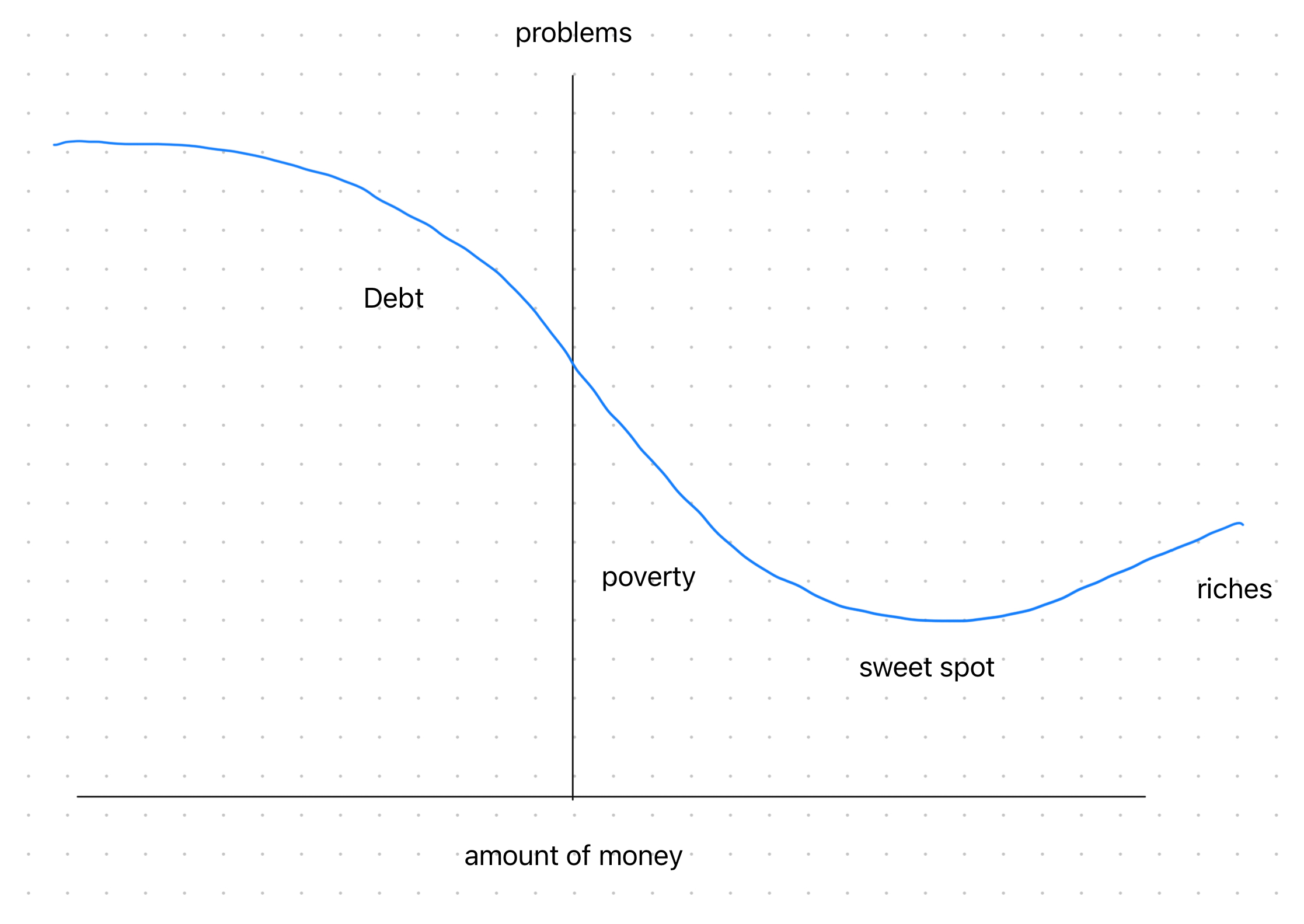The consequences increase.
You know the saying: “if you owe 100 to the bank, then you have a problem, but if you owe 1 000 000 to the bank, then the bank has a problem”
For a regular person, this translates into being able to pay off 100 by working hard, but owing 100 000 is a lot harder to work off, so they’ll need alternative solutions, like selling the car.
Financially speaking it’s the difference between a profit/loss statement and a balance sheet. Once you have enough money, P/L doesn’t matter in comparison to the balance.
Someone like Elon Musk stating that he doesn’t have any money to pay is playing on this. He’s all balance and no profit.
More like “more claims denied = more problems (for the CEO)”
Because that’s the logical fallacy of Denying the Antecedent . If “it’s raining” then “the sidewalk is wet”. Knowing that it’s raining tells us something about the sidewalk, it’s not dry, it’s wet. And knowing the sidewalk is dry tells us something, it can’t be raining (because if it was, the sidewalk would be wet).
But knowing “it is not raining” doesn’t tell us about the sidewalk (it could be dry, it could be wet, maybe it rained earlier, maybe a dog peed on it). And similarly knowing the sidewalk is wet doesn’t tell us anything about the rain.
So even if “mo money causes mo problems” all that tells us is that someone with mo money will not be problem free. People with no money might also have mo problems, the syllogism doesn’t tell us about that.
The use of the word “more” in “more money more problems” indicates that both money and problems are continuous variables. Thus, the statement should be modeled with predicate logic, but with analysis. As phrased, the sentence implies a positive derivative between the two variables. If assumed to be valid over the complete range of possible values, “less money, less problems” indeed follows.
If assumed to be valid over the complete range of possible values,
Which is where this logic fails. The saying is usually constricted to the range of “a lot of money” to “way too fucking much money”, with money less than “a lot of money” not included. Therefore the derivative can be positive, negative, zero, or anything really. Also to be pedantic technically the derivative doesn’t need to exist for a positive Δmoney to yield a positive Δproblems.
Nobody said problems(money) is a monotonic function (or that it crosses the origin point).
money means more complex problems and a larger possible drop until you reach escape velocity where its almost impossible to fail unless someone shoots you in the head in new york.
More money, more problems is referring to an excess of money. As in having too kuch causes problems, which is on the other end of the spectrum from having too little money.
When you have an excessive amount of money it draws attention and malicious behavior. Getting wealthy suddenly often means family coming out of the woodwork to try and get some of it, sales people will want to sell things, etc.
It is a saying that leaves out the important part, just like “money is the root of all evil” leaves out the “love of money” aka greed part.
So the real saying should be “love of money is the root of all evil” and “an excess of money leads to more problems”. They went with more money because it flows better.
More money, more problems is just a lie.
The only problem you can have with money that wouldn’t be replaced or superceded by other problems is having bills. If you don’t have money, it’s very easy to not have bills. But then you’d also not have a home or probably anything else, which is a bigger problem than having bills.
Y intercept is non-zero.
There’s a minimum
Different scales. Money is a simple -infiniti to +infiniti. Problems is a parabola that starts starts at +infiniti, approaches zero (without ever getting to zero) before returning to +infiniti when graphed against Money.
The people that coined this phrase clearly lived on the cusp of that return upward on this graph so their observation is limited to that subset.
In both cases it’s more problems, it’s just that most money problems can be fixed with more money.
I’m guessing the phrase originated with people who have money?
Also, biggie had to work for his money, deal with the corporate record industry, and lived in a high-crime neighborhood. If you don’t have to work, and you can afford to outsource your problems to others, then you can have a lot of money without problems.
Too much money = problems, too little money = problems
Cuz it doesn’t, more money -> more solutions. At least that’s how I use it.
I would argue that the relationship isn’t at all linear. Just take a look at the dunning-kruger curve or the hype cycle curve to get an idea how wildly these things can fluctuate.
You have it. You could also say that the graph is linear, but with different zero values (“problems” has a bottom of N > 0), but if we’re judging from IRL, it’s more like a parabola.
I like to think of it this way.

As your debt grows, your problems increase very gradually, maybe even asymptotically. As your wealth grows, your problems increase roughly linearly, but the slope is steeper than with debt. In between the two, there’s the sweet spot with the least amount of problems.
That’s a great graph. Have you figured out where the sweet spot is?





